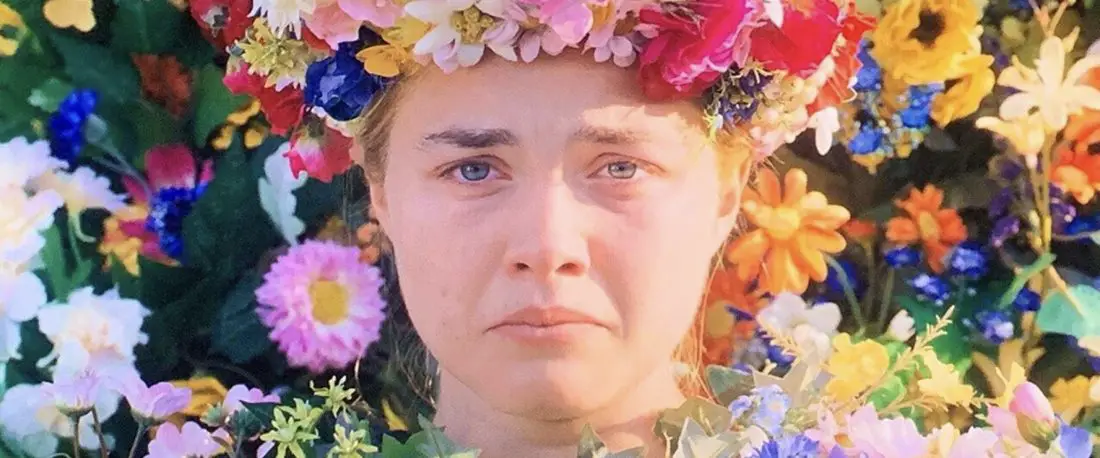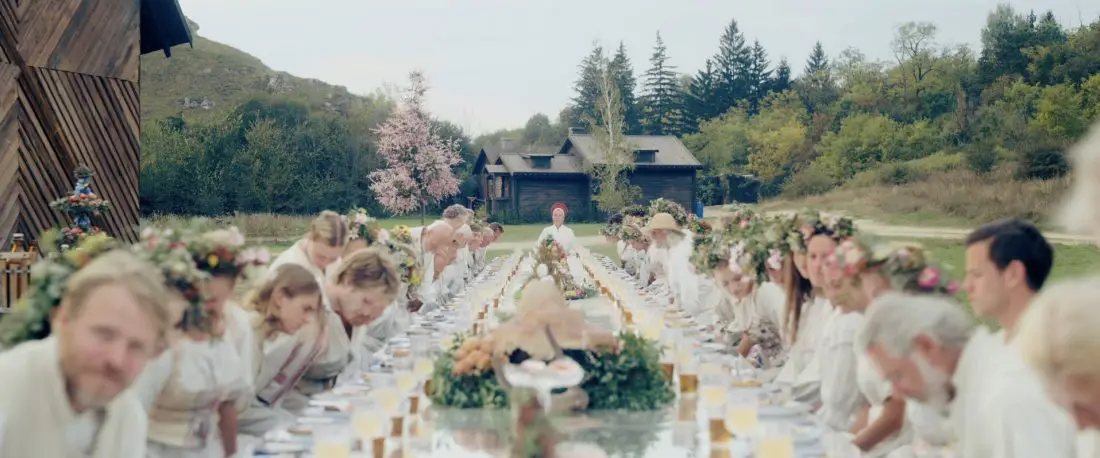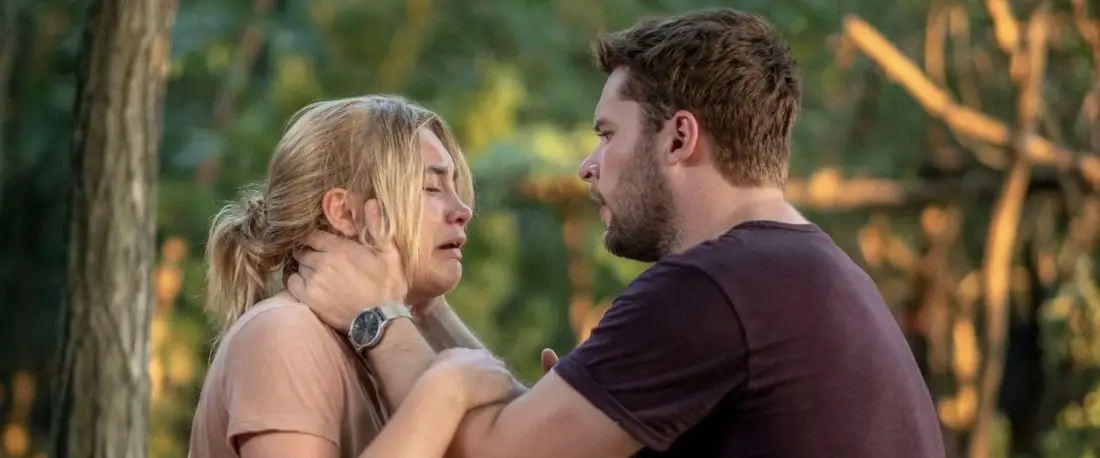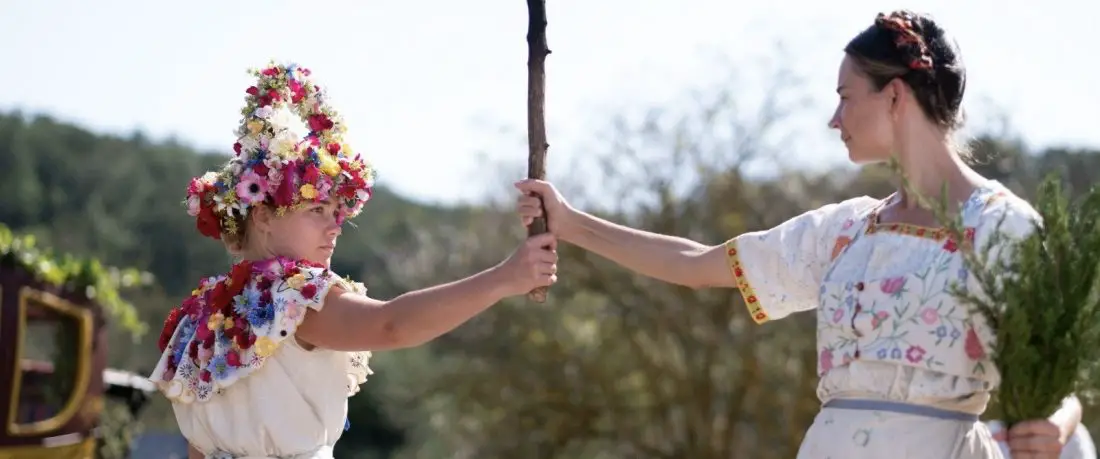‘Midsommar’ Director’s Cut Review: “Horror Perfection In Broad Daylight”
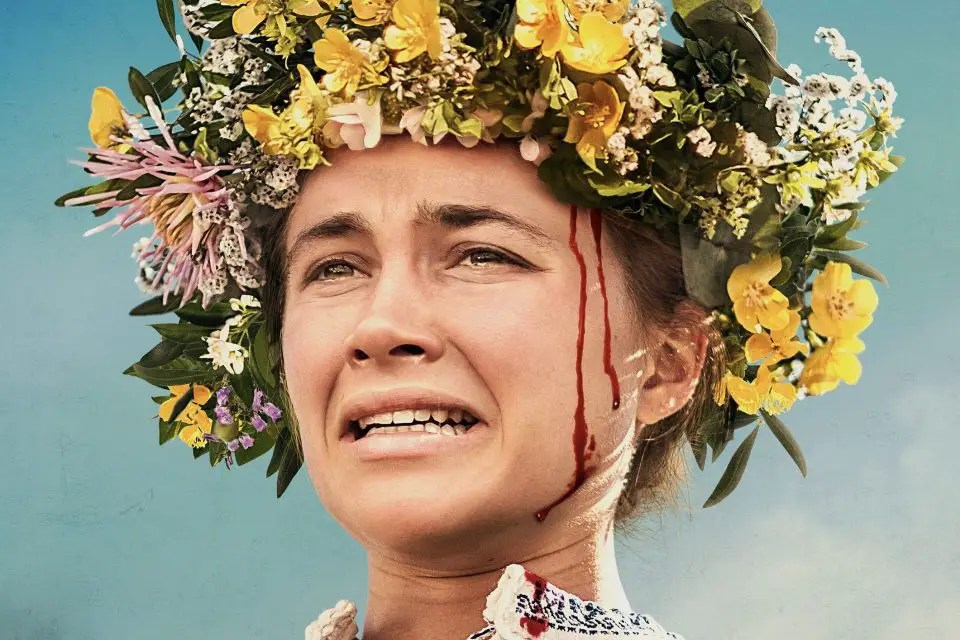
Depending on who you ask, the specifics behind what defines a masterful piece of cinema can change drastically. For some, this definition relies on a concise narrative that just happens to be told in a visual medium. For others, it relies on the filmmakers crafting striking imagery that also elicits appropriate emotions for the unfolding scenes. But for all of these variations, they play a part in doing one significant thing: transporting the audience into its fictional world. As it turns out, the recent 171-minute Director’s Cut of Ari Aster’s latest film, Midsommar, transports its audience with a spell-binding power that only the very best movies have harnessed.
Like the 147-minute theatrical version, this Director’s Cut centers around a group of young outsiders experiencing a Swedish midsummer festival for the first time. In addition, it spends a lot of time on the deteriorating relationship between the protagonist, Dani (Florence Pugh), and her boyfriend, Christian (Jack Reynor). However, this new edition of the movie adds new layers to what was already a sunny but unsettling experience. In terms of the film as a whole, my impressions closely match fellow critic Ernesto Valenzuela’s non-spoiler thoughts of the theatrical cut. As such, this particular review will be more about additional observations and notable differences between cuts. So from this point forward, the review will contain major spoilers. To those who have not seen any version of Midsommar, now is the time to bail out.
Given how many times Aster shows the Hårga commune in its full glory, it is important that he and his collaborators can capture an unconventional yet inviting vibe. So it is reassuring that they have achieved that with such passion. Many critics have already praised the bright and hazy aesthetic that cinematographer Pawel Pogorzelski has crafted. Not to mention, the general consensus towards Andrea Flesch’s pristine costume designs is downright glowing. In both cases, Midsommar earns every bit of praise as it has received. In every scene, the movie incorporates these elements to amplify the calm and horrified emotions of the characters. It does not matter whether a scene involves pleasant character interactions or a public sacrifice. With each minute, the filmmakers prove that prioritizing atmosphere to the same level as the script results in top-tier cinema.
There is another essential ingredient to the discomforting experience: its phenomenal use of humor. Midsommar might only be Aster’s second full-length feature. But this does not mean he is a stranger to placing odd gags within a serious backdrop. In fact, one of Aster’s short films, 2011’s The Strange Thing About the Johnsons, feels like a dry run for the wonderfully abrupt jumps in tone that he would do again here. In this case, we have Mark (Will Poulter), who repeatedly makes silly remarks about the festival and Sweden in general. Admittedly, there is little to Mark outside of his love for Swedish women and vaping. However, Aster and Poulter do their best to make him appear as funny and relatable. When combined with the calmer surroundings, the humor allows the first half to feel exciting as opposed to feeling flat.
On the subject of the Director’s Cut, the extra 20-25 minutes exist to further cement one of two elements. The first is the deliberately slow and serene atmosphere, which is largely aided by minimal edits in scenes. Meanwhile, the second is the withering romance between Dani and Christian. Aster’s screenplay is excellent at showing the final stages of a toxic relationship, and some of the most crucial additions flesh this out to a considerable degree. For example, one addition expands the scene where Christian invites Dani to go to the festival. While the previous edition stopped at that point, this edition elaborates by showing Christian lying to Dani about him using this invitation as a romantic gesture.
This is the first of several changes to Midsommar that make him genuinely unpleasant as a boyfriend. Furthermore, each one does it more openly than the last. In a new scene, Dani and Christian argue at night about whether any of Dani’s recent actions – including an offering of flowers – are meant to overcompensate for their struggling relationship. It is here where the simmering anger bursts in flames. In addition, it manages to reveal Christian as emotionally abusive to Dani. While he may not show as much disrespect to the Hårga commune as his peers, his treatment of Dani in this scene arguably places him as the one most deserving of punishment. Because of this, it is the one new scene that truly enriches the film from top to bottom. In fact, it is downright baffling that it did not appear in the theatrical cut.
Additionally, this cut exposes Christian as a thoroughly unlikeable person in general. Another extended bit involves his interactions with Josh (William Jackson Harper) about brainstorming a thesis. While the previous version simplified the reveal that Christian was going to copy Josh’s ideas, the Director’s Cut goes in a different direction. By contrast, this shows the huge degree that Christian would appropriate someone else’s work. For one thing, the big argument between the two is a few minutes longer. Also, we see more of Christian pushing his way towards interviewing whoever he can. In fact, he makes no hesitation to ask the most taboo questions to members of the Hårga commune. As a result, the movie transforms into a feature-length exercise on why uncaring people like Christian should face dire consequences.
As for the climax, it is much more cathartic thanks to the expanded characterization in the film’s first two hours. With the Hårga commune accepting Dani as one of their own and subduing Christian along the way, it gets to the point where the act of breaking up cannot just be the separation of individuals. Instead, Dani breaks up with Christian by nominating him for a traditional sacrifice. As Christian burns alive with the other participants, Dani watches the event with an expanding smile on her face. Considering everything that led up to the ending, her smile in the Director’s Cut cannot help but be the most satisfying thing to watch. This is not to say that the theatrical version stumbles at achieving the same, but it is definitely a sign that the “less is more” principle is not applicable here.
Taken as a whole, there is virtually nothing to complain about with this new edition of Midsommar. What seemed at first like a phenomenally atmospheric movie becomes more emotionally satisfying with this iteration. Given the unstable relationship at the heart of the narrative, this version absolutely benefits from the new scenes depicting Christian as casually destructive. Because of this, the Director’s Cut sees the movie in its most ideal form. It’s not enough that Midsommar is already more ambitious and assured than Aster’s previous film, Hereditary. To top it off, this particular cut also happens to be one of the few perfect movies of the 2010s. I sincerely doubt that any 2019 film will come even half as close to the heights of this horror masterpiece.
10/10
The Director’s Cut of Midsommar is now playing in theaters.
The film stars Florence Pugh, Jack Reynor, Vilhelm Blomgren, William Jackson Harper, Will Poulter, Ellora Torchia, and Archie Madekwe.

